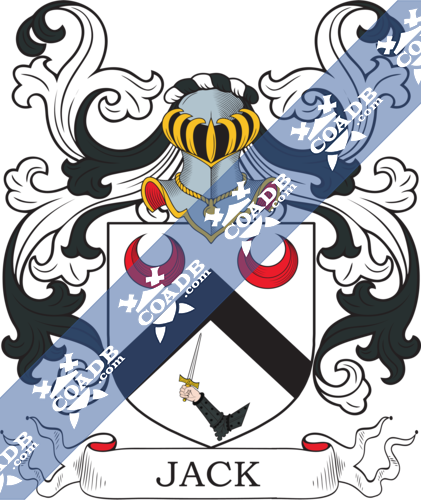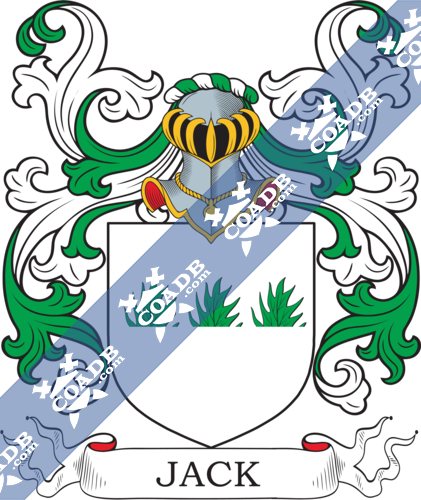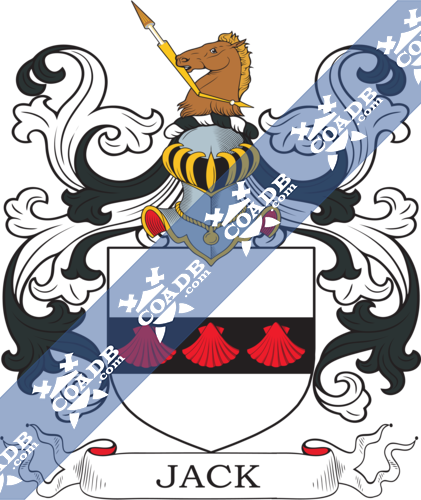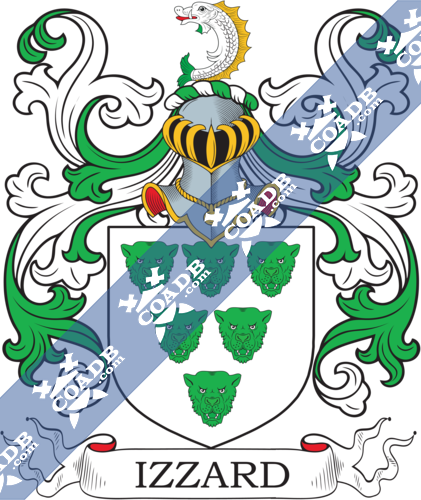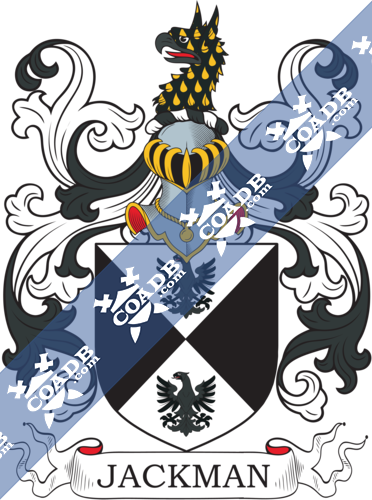Jack Family Crest, Coat of Arms and Name History
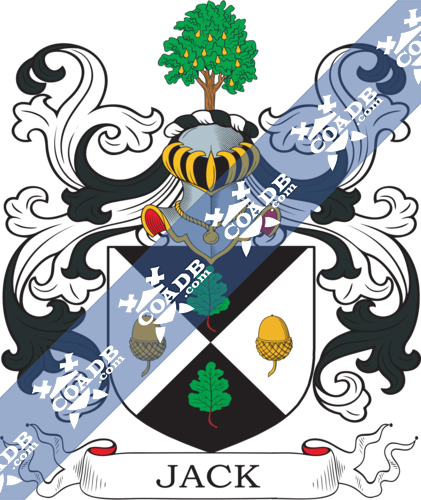
Jack Coat of Arms Gallery
Don’t know which Coat of Arms is yours?
We can do a genealogical research. Find out the exact history of your family!
Learn MoreJACK
The surname Jack is a medieval English name derived from the old French Jacques which comes from the Latin Jacobus. Jacobus comes from the Hebrew given name Yaakov which translate as “one who follows” or “to follow after”. The name is thought to have immigrated to England by way of France. French soldiers returning from the Crusades in the Holy Lands are thought to have imported Hebrew given names upon their return where it took on the more Anglicized styling of Jack. At the time of the Crusades, the use of names considered biblical or Christian became very popular, it was also during this period many names which may have been considered Hebrew or biblical became fashionable and were adopted into the European lexicon.
Various spellings of the name can be found in the medieval and ancient records. This is attributed to the lack of guidelines used in spelling at that time and the fact that a large number of the scribes charged with record keeping, spelled phonetically. What may have sounded one way to one person may have sounded completely different to another. Some of the early variations include; Jack; Jacks; Jacke, and among others. One of the earliest records of someone bearing a variation of the name, William Jagge, can be found in official priory records from Cambridgeshire dated 1251. Before surnames became common, differentiating between generations led also to ‘Son of Jack’ becoming Jackson.
The widespread use of surnames in Europe did not occur until somewhere in the mid to late 16th century up until that time, the use of surnames was a practice largely reserved for the noble class. Citizens found little need for surnames as most communities were relatively small, most residents knew each other and a given name would usually suffice. However, with the passage of time, population growth and with the expansions of communities, it became necessary to add a qualifier to a people’s names to distinguish them, one from another. Therefore, one person may have been identified by their given name plus their occupation while another may have been identified by their given name and one of their parent’s names. The practice of using surnames like the aristocracy seemed to be the next logical step in this evolution. There was an unlimited supply from which surnames could be formed, in addition to the use of patriarchal or matriarchal names or reference to the individuals occupation, there were things such as defining physical traits, a familiar geographical location or a topographical landmark found near the individuals home or birthplace, or the name of the village in which the person lived, among others. The use of surnames also served the practical purposes of it gave governments a reliable way to track people for tax, census, and immigration purposes.
With the discovery of America and the addition of other countries to the British Commonwealth such as Canada, Australia and New Zealand, the use of surnames helped with the tracking of immigrants as well. One of the first recorded immigrants to America bearing the surname was Ezekiel Jack who arrived and settled in Virginia in 1635. William Jack was one of the early settlers to Canada, arriving in 1796 and settling in Newfoundland. Margaret Jack was an early settler to Australia, arriving 1839 and settling in Adelaide and Tom and Martha Jack along with their children Maggie, John and Jean were some of the early settlers to New Zealand, arriving in 1861 and settling in Auckland.
Worldwide, the highest concentration of people with the surname Jack are found in New Zealand, the United Kingdom, Australia, Canada, and the United States. By state, the largest percentile of those with the surname Jack live in Maine, Massachusetts, New Hampshire, New York, and Pennsylvania.
There are numerous people of note with the surname Jack. Sir Roy Emile Jack was a cabinet minister to the Prime Minister of New Zealand as well as having served in the New Zealand Parliament. For his government service, he was knighted in 1970.
James Julian Bennett Jack is a noted physiologist from New Zealand. He was a Rhodes Scholar at Magdalen College, Oxford where he also became part of the faculty.
In early American history, the surname of Jackson, played a pivotal role in the future of transitioning from Colonial rule to self rule. Most notably of President Andrew Jackson of South Carolina. The Jackson family had immigrated from Ireland during the colonial period. President Jackson was born during the colonial era and during the revolutionary war was captured by British forces when he was a courier carrying messages between military commands. He was tortured for information he possessed. His rough treatment instilled a lifelong hatred of all things British. Jackson also led American forces at the Battle of New Orleans in the war of 1812. Due to lucky weather conditions, and his overall generalship, Britain suffered one of her worst defeats in their overseas colonial history. His fame as a general helped him later in his life to become the seventh US President.
Blazons & Genealogy Notes
1) (England). Per saltire ar. and sa. two oak leaves in pale vert, and as many acorns in fesse or. Crest—A pear tree vert, fructed or.
2) (Scotland). Ar. a chev. sa. betw. two crescents in chief gu. and in base an armed arm of the second, holding a sword ppr. hilt and pommel or.
3) (Woodhall, Scotland). Ar. three demi holly leaves divided fesseways vert.
4) Ar. on a fesse sa. three escallops gu. Crest—A horse’s head erased, holding in the mouth a broken tilting spear.

